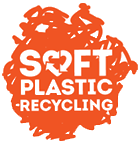No need to become the Grinch when reducing Xmas waste
It’s no secret that Christmas creates a considerable amount of additional waste each year - from food waste, to paper, plastic, and glass bottles - but there’s no need to become a Grinch when trying to reduce the amount of waste going to landfill over the festive season.
During the busy months of December and January, New Zealanders generate approximately 30% more waste, or around 25,000 tonnes of general waste - that is the equivalent of 5kg extra waste for every New Zealanders or five Christmas puddings per person.
Each year we spend approximately $1.8 billion on Christmas related shopping and gifts, with a massive increase in discarded packaging such as wrapping paper, soft plastic wrapping and cardboard.
Dealing with waste can often seem overwhelming but there are a few simple things Kiwis can do to reduce their Christmas waste, and what ends up in landfill and in the environment.
Recycling glass bottles, plastic and paper is the easiest way to reduce waste going to landfill; and the best news is that wherever you are travelling to in New Zealand you can choose to recycle.
New Zealand’s top holiday destinations swell over holiday time which puts pressure on the local rubbish and recycling collections; and it’s not just Kiwis, we are expecting to welcome over 145,000 overseas visitors this summer which adds to the considerable waste our systems need to manage.
"Sales of drink products, for example, increase exponentially over the holiday season - approximately by 30%," says Rob Langford, CEO The Packaging Forum. "Unfortunately, there is also a huge increase in recyclable glass, cans and plastic that end up in landfill - especially when people are away from home."
Mr Langford explains: "What many Kiwis don’t realise is that glass is 100 per cent recyclable; and of the glass that is recovered in this country, the majority is recycled into other glass products - all here in New Zealand."
Most Councils, especially those in holiday hotspots, will increase the amount of kerbside collections over this period and there are plenty of public place recycling bins across the country making it easy to recycle when you are on the go, says Mr Langford.
"We have many circular solutions to waste right here in New Zealand. By recovering waste materials such as paper, plastic, metal and glass, and turning them into other products, we are not only diverting this waste from landfill, we are attributing a value to products that would otherwise have held little to none"
"One of the most successful examples of this is the Soft Plastic Recycling Scheme which is operated by The Packaging Forum. Soft plastic from around the country is collected from points around the country and is recycled in to fence posts and building supplies by local processors."
There are now more than 250 drop off points for soft plastic recycling across New Zealand. Last year more than 333 tonnes of soft plastic was collected and recycled into 37,000 fence posts; and this year it has increased to 500 tonnes, and more than 50,000 posts have been produced. Recently key holiday hot spots such as in Gisborne and the East Cape, as well as the Coromandel region, have collection bins installed at key retailers in the region.
It's not only the soft plastic from food and grocery items that can be recycled, but much of the Christmas waste - soft plastic wrapping from Christmas gifts and cards, and the plastic courier packs from on-line shopping deliveries.
Mr Langford says another sure-fire way to reduce waste and, in many cases, save money is to choose to reuse.
This year The Packaging Forum funded several community projects that have focused on reuse including refillable water stations set up at key spots such as Waihi Beach, to wash trucks to give events access to facilities to wash reusable drinks containers, plates and cutlery in Dunedin, Marlborough and Wellington.
Food waste is a major contributor to our rubbish with the cost of wasted food every year estimated to be $2.4bn or 8.6% of our food. At Christmas our food waste goes up by around 40%. Easy ways to reduce food waste over Christmas include making a shopping list so you only buy the fresh goods you need and freezing leftovers

